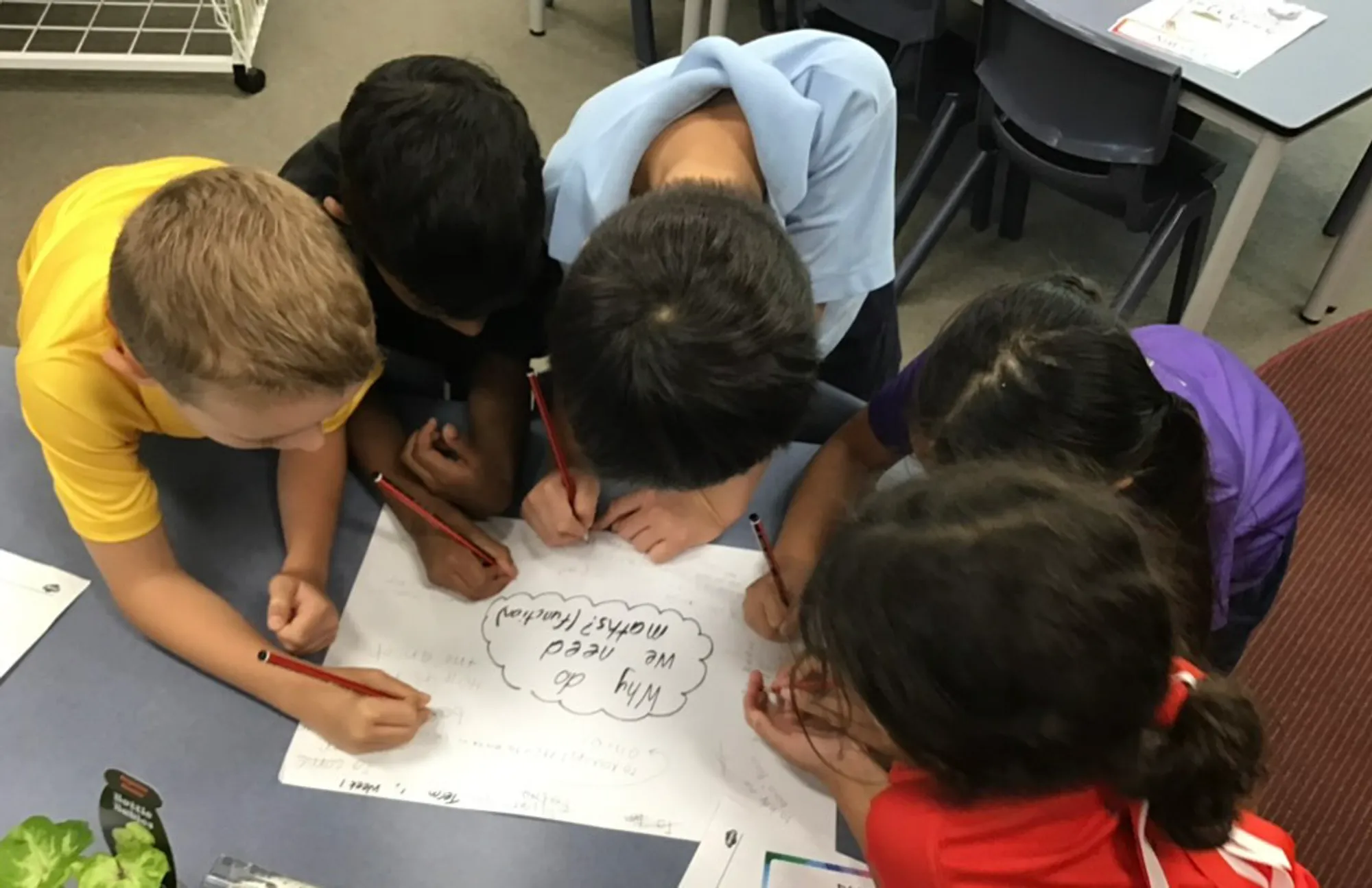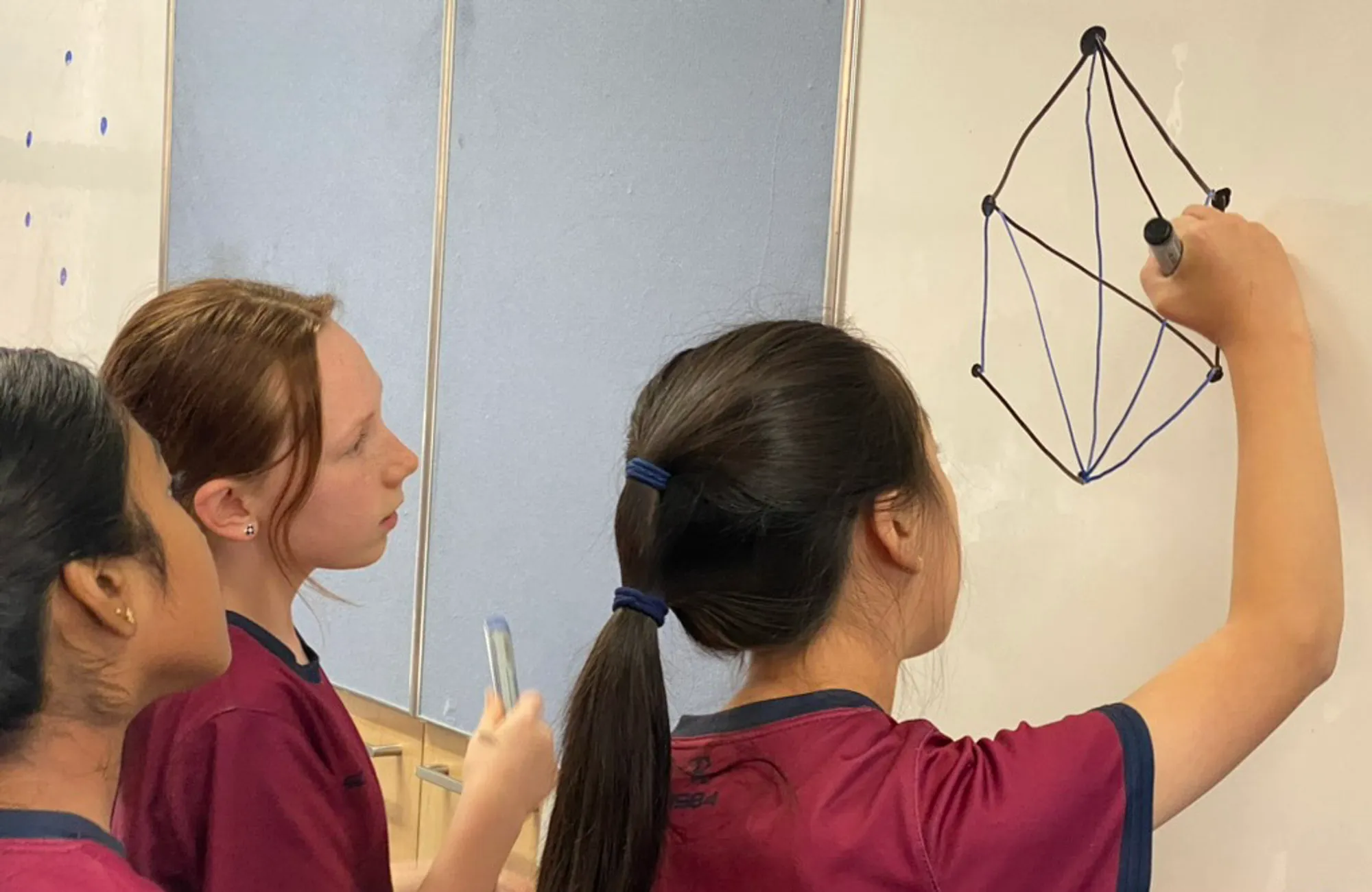In the spotlight
By Ms Emily Begbie, Assistant Head of Junior School Learning and Teaching
“A culture of thinking produces the feelings, energy and even joy that can propel learning forward and motivate us to do what at times can be hard and challenging mental work.” - Ron Ritchhart
Since its inception as an International Baccalaureate (IB) Primary Years Programme (PYP) school in 2008, the work of learning and teaching in the Radford College Junior School has been guided by its philosophy and pedagogical framework. In a PYP school, thinking and meaning-making sit at the heart of all learning. Through a skilful balance of guided inquiry and explicit instruction, students participate in learning experiences that foster critical and creative thinking, questioning, analysing and problem solving, alongside the development of foundational skills. We believe that creating a culture of thinking—challenging all students to think for themselves—is key to building meaning, understanding and confidence.

A core element of the PYP is the ‘approaches to learning’ (ATL), a set of skills that are explicitly taught and nurtured in learners from Pre-Kindergarten to Year 6. The ATL reflect our belief that learning how to learn is fundamental to both education and life. They support students to be agentic and self-regulated learners, and include communication, research, self-management, social and thinking skills.
Pedagogical approaches that nurture and promote thinking are found across all learning areas in the Junior School, from literacy and numeracy to specialist subjects and transdisciplinary units of inquiry. In spelling, explicit and systematic teaching of phonics sits alongside guided inquiry into the structure and origin of words. These linguistic inquiries support students to think deeply about how words work and to understand the logic of the English spelling system. Analysing words, in turn, leads to deeper comprehension, stronger spelling skills and enriched vocabulary.

Students across the Junior School participate in regular writers' workshops, which create a culture of thinking like a writer and sharing this thinking within a community of writers. Workshop lessons provide the time, quality models, explicit teaching and personalised feedback that support students to learn the skills of drafting, revising and editing, along with the fluency and confidence to see themselves as writers.
In maths, the Junior School is exploring an approach developed by educator Peter Liljedahl, Building Thinking Classrooms, which focuses on how we can teach mathematics in a way that gets more students to think, and to think for longer. Again, through a careful balance of explicit instruction and guided inquiry, students can develop sustained thinking and complex problem solving. As well as learning core mathematical content, students are developing skills in collaboration, perseverance and risk-taking.
There are opportunities to build thinking in many other areas of learning, such as philosophy lessons, specialist subject experiences, outdoor and play-based learning, and through our transdisciplinary units of inquiry, which challenge students to engage with significant ideas beyond the surface level of knowing.
We are proud of the culture of thinking being fostered and lived out each day in our learning spaces, and echo Ron Ritchhart’s observation in his book, Creating Cultures of Thinking: The 8 Forces We Must Master to Truly Transform Our Schools:
“When we recognise that true understanding of a discipline involves learning its processes and ways of thinking as well as its content knowledge, then we naturally create opportunities for developing those abilities.”
